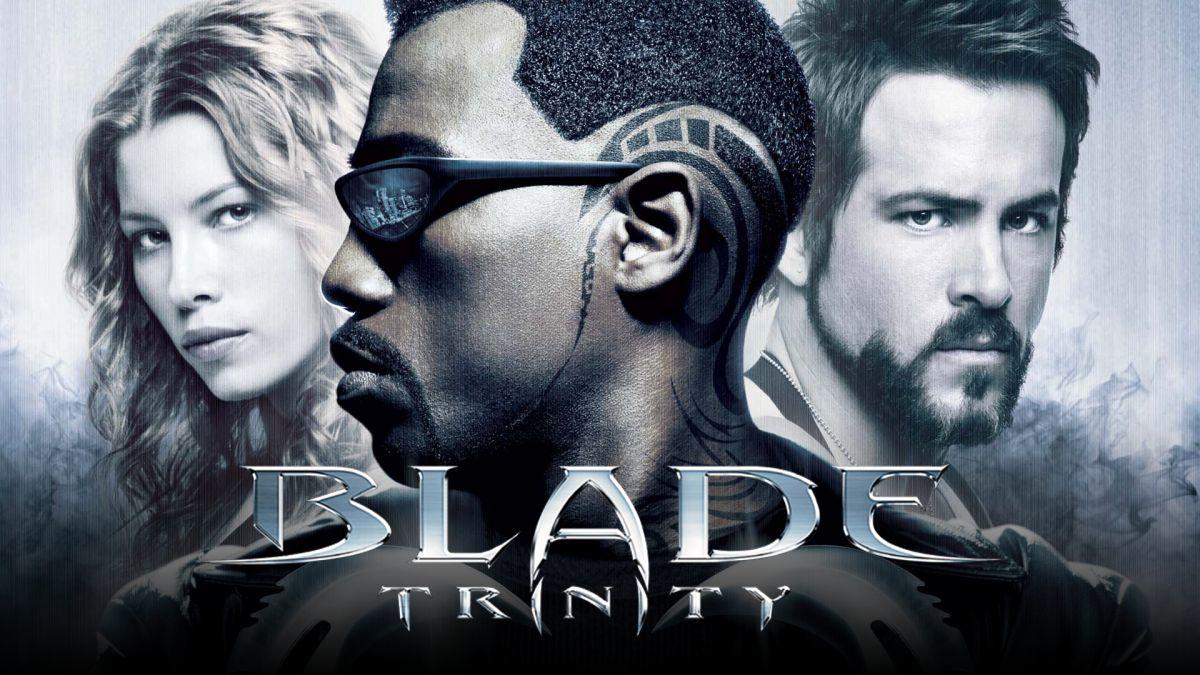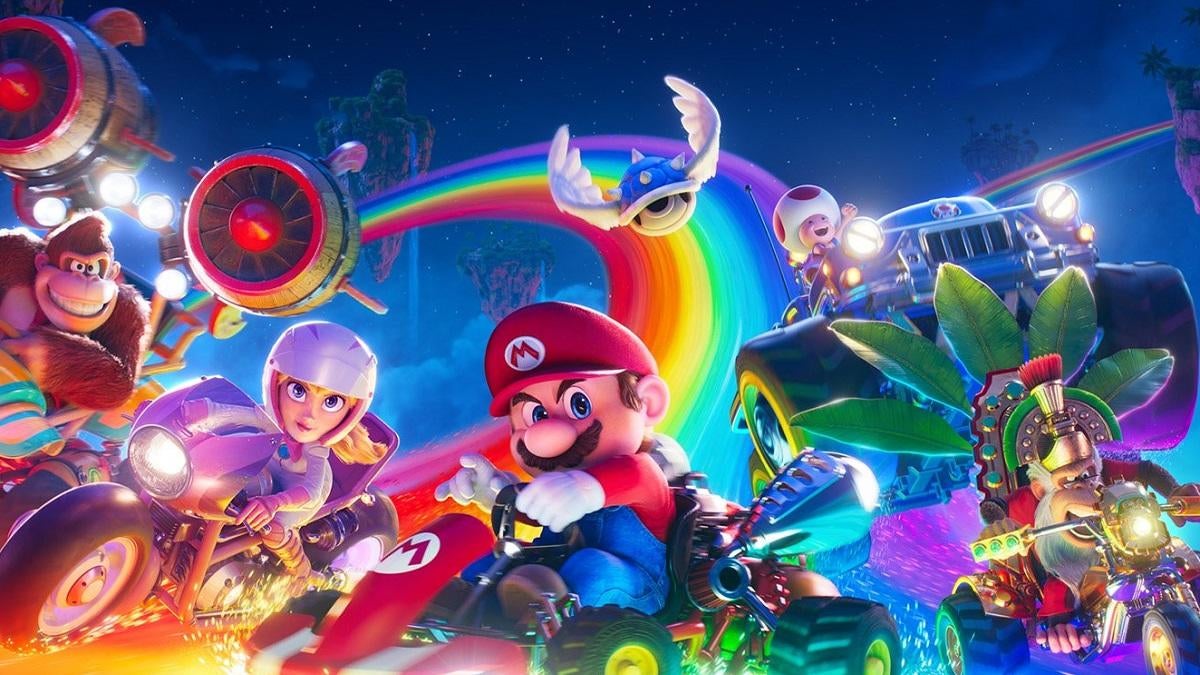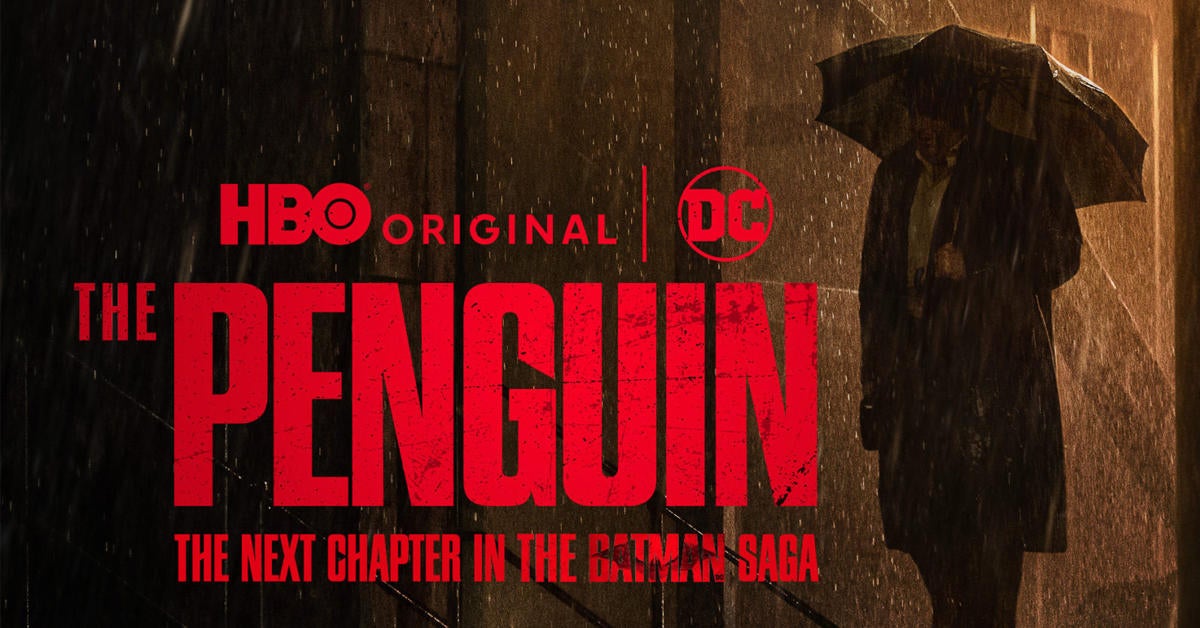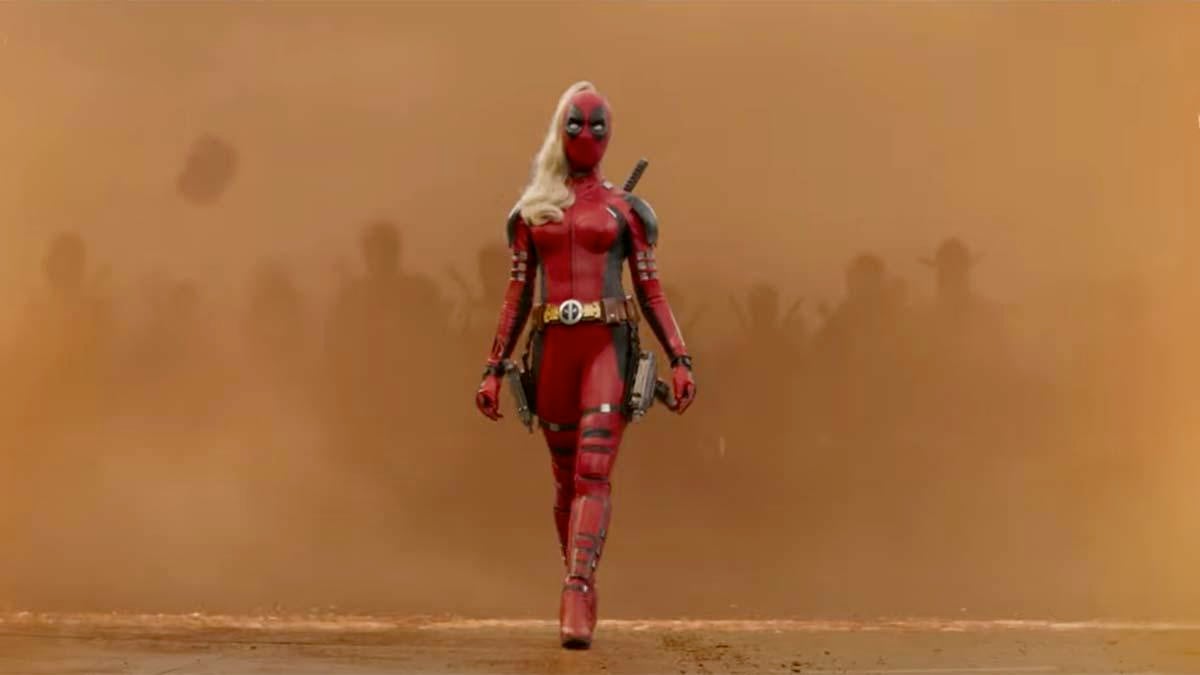Michel Fiffe Talks Lone Wolf & Cub, COPRA's Evolution, and Jack Kirby
Michel Fiffe is one of the most exciting talents working in comics today. His self-published [...]

Michel Fiffe is one of the most exciting talents working in comics today. His self-published series COPRA has found an enormous following based on its unique aesthetic, fast-paced genre storytelling, and impactful artwork. It has led to opportunities at Marvel Comics and now a spin-off miniseries: COPRA Versus.
ComicBook.Com sat down with Fiffe at HeroesCon in Charlotte, North Carolina. Fiffe discussed his reading habits, philosophy on comics creation, and a variety of other subjects.
When your life isn't being entirely consumed by COPRA, what are you reading these days?
Michael Fiffe: I'm reading through Lone Wolf & Cub. I know that is a classic and not a new comic.
But those new Dark Horse reprints are great.
Fiffe: They are and it's a timeless comic. I'd say it's a true masterpiece. It's a real work of art. It goes beyond economics. It's just such a great story, especially for a story that long, that sprawling. You can't compare it to anything else; nothing comes close. I like it because it entertains me, but it is also inspires me.
Is this your first time reading through it?
Fiffe: First time through it, yeah. I had always threatened to read the first editions that came out in the eighties, and then Dark Horse released the smaller volumes. I just missed out. It was so overwhelming, but I was dumb. Everyone should read this book; it's the best. So the new books, the new editions are invaluable. I'm also reading anything Ben Marra has out. He just recently put out a 'zine of swords and sorcery. I also really like Revenger, but I feel weird saying that because that's like part of the family.
It's almost a little incestuous.
Fiffe: Yeah, it is like saying my brother is my best friend or something weird like that.Which isn't weird at all, but it feels too in. I do love it. I generally get excited whenever an issue comes out, which is rare for me to do. I see a new issue and there is so much stuff. I am always in awe of people that keep up with it and enjoy it and engage that sort of material constantly and aggressively. But what would we do without that enthusiasm?
Yeah. It sounds like Lone Wolf and Revenger are both books that light that fire under your ass where you need to push yourself.
Fiffe: Oh my god, yeah. The quality of something like Lone Wolf alone is humbling. It is like every time I read a Chris Ware comic I think, "What am I doing?" You have to scale it back. I have to scale it back and just reconsider everything. It is weird. It is a good feeling.

Reflecting on your own COPRA is ongoing, but it feels like a book that is evolving with each round you put out. Now you're doing COPRA Versus on the side as well. Is there a grand plan for the series that is still evolving?
Fiffe: There is. I do have an endpoint in mind. But I think the spirit of the book is that it changes with me, with whatever my values are at the moment. The core of my artistic style and philosophy may remain the same, but I am always discovering new things and approaches and ways to work stuff out of my system.
On one hand, it is an entertainment vehicle that is moving forward and that momentum can't stop. It's also this organic, freeform experiment. I am reluctant to call it freeform because it is not like freeform jazz. This is not experimental comics. It's still a genre comic with some sort of structure, but I leave enough elbow room in the whole process to shift a little bit so it can remain fresh in my eyes. I really believe that if I am bored with the material, the reader's going to be bored and they are going to see that I am bored. That is so dangerous.
That approach shows in "COPRA: Round Three" where you are clearly pursuing a different aesthetic in each issue.
Fiffe: Right.
You mentioned that your core philosophy and art have not changed, and then that you are always following your own impulses and interests. Is that your core philosophy?
Fiffe: Pretty much. It is the essence of style. It's how you see the world. I don't think I have a style at all, but that is because of the automatic function of just drawing. I am not that self-conscious about it. When I look back, I can see specific things I do, but when I am drawing it, I am on autopilot in a weird way. That's the drawing part of the process.
What I mean by that is you have to filter all of your influences. It happens with everything; everyone goes through this. You have to filter your influences to get to your own voice. Some people achieve it quickly and some never do. I used to deny myself those influences and I don't know what I used to strive for. It was really this vague notion of what I wanted. I think something like COPRA is so direct and so simple in its mission statement that it has helped me move forward. It has helped my art evolve.
I think COPRA makes for an interesting study. Art is like a history of stealing and influence. Everything builds on something else until we are all standing on top of cave paintings. COPRA is interesting because you can point to the influences of someone like Jack Kirby or Frank Miller, but it is definitely a Michael Fiffe comic. You can see what you read and what you enjoy, but it is not trying to imitate them; it is you trying to be you.
Fiffe: That is one of the dangers I run: being mistaken for pastiche. I don't think I do that. I don't do that consciously. I think when people say that, they are responding to this feeling they get when they read my stuff. It's not that it reads like an eighties comic. It certainly doesn't look like an eighties comic. But there is something about the whole package, my whole approach, that makes them feel that warmth that they felt back in the day.

It feels like the evolution of what your favorite eighties comics could have become, because mainstream comics definitely don't offer what you offer.
Fiffe: I don't think COPRA could exist in a modern, mainstream setting. I formulated this setting for myself. Comics are low-stakes enough that you can do this sort of thing and pull it off, or at least attempt it. I had no idea COPRA was going to turn out like this. I just went with it. Not only has it built my life and changed it considerably, but it has lead me to do exactly what I wanted to do. It is the closest to what I have wanted to do all of my life. Right now I don't know where to go from here.
Why do you think readers have responded to COPRA so well?
Fiffe: That's the thing; people, readers, they respond to it for several reasons. I think that's the advantage COPRA has. It could be old school superhero readers or new indie readers. I find a good middle ground and I try to do both ends of the spectrum. That's great because that's the stuff I like, but I can't think about that too much. Really, this is just an exercise in working through my influences, which could very well last all my life. I am never going to get rid of my influences.
A lot of people work backwards. They find an audience through various routes in comics and then they are able to chase the thing they want to create.
Fiffe: That's the benefit of feeling like your back is against the wall and you are not gaining any traction. I felt frustrated and like I had to do it my way absolutely, under the radar and for myself. I have always drawn for myself, but I figured no one would read this comic at all. I was going to do this genre thing that I am not used to drawing. One of the elements of COPRA is that it has a lot of fighting and a lot of violence and a lot of weird looking characters. I wasn't used to making comics like that, even though I read comics like that. So there was that weird discrepancy.
It is like, "I need to address this. I need to do what I love. Why wouldn't I do that? Why am I resisting this?" But I don't want to think about this too much. That's the key thing about COPRA;I don't want to think too much about it. That is not to say I don't think it to death. I am analytical with everything I do. I am hypercritical probably to a fault sometimes, but I can't let that stop me.
Was that part of the initial strategy for the first twelve issues, where each issue had to be done in one month?
Fiffe: Pretty much. Four to five weeks. Thirty days is tough; I'd have to really crank it out, but that was part of the initial game plan. It was just to get through it, treat it like a job. And it is a job. I try to put that hat on where I am a robot in service of a higher object. But I also have that artist streak in me and there's that struggle. I think what comes out of that struggle is what makes this its own thing.
Do you think that is a valuable component of the comics medium too, the immediacy of comics? Jack Kirby was someone who was cranking out multiple books each month, a lot of what we consider canonical works came out in quick succession.
Fiffe: Yeah. I wanted to tap into that because I felt like working on pitches, refining work, and editing it to death killed a lot of the fun. What I am producing may be a little rough around the edges and may be a little too raw. It may need a couple of finer points. But you lose the point; you are missing the point if you do that too much.

Another interesting aspect of comics, and something you see in series like COPRA or Revenger, is that you get to experience artists who are putting something on the page that is purely themselves.
Fiffe: Kirby's a good example because he was a genius. It is difficult to compare and measure anything against him because he was so singular in his vision and he defined the language for decades. Personally he is a good inspiration point. We are fortunate to have that high benchmark and that is what inspires me. He is one of the people that inspires me, and on a more practical, real life, real world level, his work ethic is remarkable and it is doable. It shouldn't be an uncommon thing.
Again, we are talking about my values, but I think the values all across comics are so different. Comics are open enough to accommodate those values. What you get is people who put emphasis on different things, different aspects of comics, which is already multi-layered. I wanted to concentrate on the output, on producing a work that is complete and accessible and serialized on a constant basis. Other people may not want that. That's not their goal. I don't care. To cite Kirby or not cite Kirby? I mean, I do cite him and mind him for inspiration. But using him as a sort of guide I think is required if you want to produce this kind of a work - if you want to produce serialized, raw work.
And one of the key things people sometimes don't always understand with Kirby is that it's not just his work, but it was his life and how he chose to live it. He was someone with a great work ethic and a bold, stand up person.
Fiffe: Right. He was a family man; he just wanted to feed his kids. He may have balked at the idea at being called a genius. He was just doing a job, and happened to be really good at it, you know? The industry didn't treat him as well as it could have, but that's the nature of this specific business, especially back in the day. There is nothing to be done about that, but he did get to feed his kids. The way I approach this comic on a practical level is to pay rent and feed my kid. I can't engage a work that is similar to what I did before. I respected the sacred cows, and even the ones I didn't respect, I acknowledged. Part of the thing that makes COPRA happen for me on a daily basis is saying fuck it to all of that.
A big part of the attraction to COPRA is that it is unpretentious. It feels raw in a fundamental way. That doesn't make it unartistic by any means. In some degree, that is the core of art, that it is personal and being put straight onto the page.
Fiffe: Right. At the same time, I'm not trying to be personal. I am trying to tell a good action story, but not have it be a flat, basic action story. I want to give it a little extra because that is the stuff I like. All of my favorite comics are that.
I suppose that is what I meant by personal. When I read it, I think, "Oh, yeah. This is what Michel Fiffe loves."
Fiffe: I am glad that you pick up on that and that comes across. I feel like that is out of my control; I can only try my best. Speaking of "Round Three", that is a very specific set of books. Every issue is very individual and they each represent a different tone. The following one, "Round Four", which is coming out in September is its own thing too. That is me trying to attempt different things. Now in issue twenty-seven I am in new territory, too. I have never worked on a story this huge, juggling plot threads on that scale and trying to keep readers interested. I want old readers feelings like they've been rewarded for sticking it out with the book and to be engaging and making it compelling for new readers.
Is that the key joy of creating COPRA? Discovering new challenges and level as you keep going every month?
Fiffe: Hopefully that is part of everything I do, really. I don't ever want to feel like I've got this. I don't want to ever feel complacent with it. I don't want to be too frustrated because that will come across as well. It's got to be the right mix. But I am always thinking - I am super critical of myself - if I can get better per issue. If I can do that, then I have won in a weird, small way.




